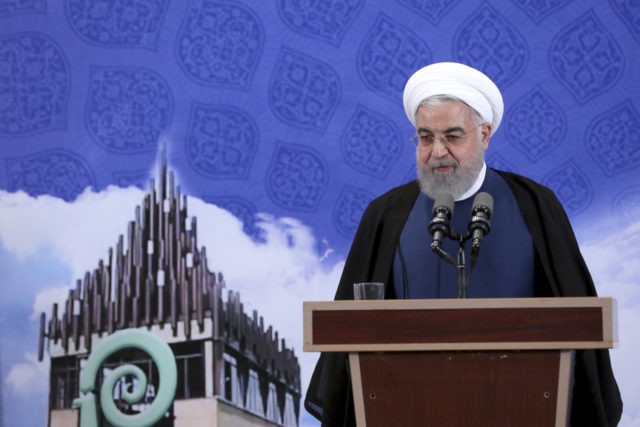A group of Iranian parliamentarians introduced a motion on Monday to ban televised confessions from political prisoners, acknowledging criticism that many of the confessions are extracted with torture.
The proposed rules stipulate jail sentences for every party involved in producing public confessions.
Radio Free Europe/Radio Liberty (RFE/RL) reported on Wednesday that the anti-confession bill was drafted by reformist lawmaker Mahmud Sadeghi, who was motivated by such notorious abuses as a 2012 “documentary” that spotlighted a dozen prisoners who confessed to spying for Israel. One of those individuals later relocated to Germany and gave interviews in which he said he was tortured for seven months before giving his confession, which was invalidated in 2015.
A more recent case noted by RFE/RL was the disappearance of opposition activist Roohollah Zam, who appears to have been kidnapped abroad by the Iranian Islamic Revolutionary Guard Corps (IRGC), a designated terrorist organization and the military wing of the Iranian theocracy. Iranian state television displayed a video last month of Zam delivering what appears to have been a forced confession, combined with a denunciation of the United States, Israel, Saudi Arabia, and Turkey. Zam was last known to be living in Paris before his abduction.
Another Iranian lawmaker, Ali Motahari, responded to the Zam video by issuing a public warning to the IRGC in mid-October not to use forced confessions from its prisoners to indict other suspects. Motahari’s statement also referred to the 2012 documentary denounced by Sadeghi.
Iranian-Swedish dual national Dr. Ahmad Reza Jalali, who was arrested on dubious charges of espionage during an academic visit to Tehran in 2016 and sentenced to death, also recently appeared in what his family denounced as a forced confession video.
Jalali’s wife said he told her in a telephone call that he was “under heavy pressure to submit to a forced confession” and was threatened with the execution of his death sentence if he refused. Jalali’s health appears to have deteriorated while in captivity at Iran’s infamous Evil prison, and he has been denied hospital transfers.

COMMENTS
Please let us know if you're having issues with commenting.